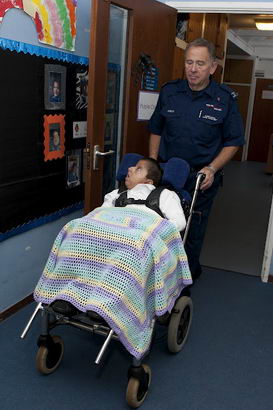
For children with complex learning needs it is especially important to ensure that a comprehensive assessment of those needs is carried out before the child comes into the specialist setting. This will ensure that the perspectives from home as well as other professionals, where appropriate, are taken into account as advocated in the Government Green Paper, Support and aspiration: A new approach to special educational needs and disability.
The learning needs and styles of pupils will have a strong influence on your planning whether you are a teacher working with pupils with learning difficulties in a mainstream setting or in a special school. Having worked your way through the resources in Level C of this module you will now be in a position to identify what these may be and to consider how the learning styles of individuals might impact on your planning.

The CLDD Engagement Profile is one resource which facilitates this partnership to assist continuity across settings.
At a special school each pupil who is coming new to the school with a complex learning difficulty will have an Engagement Profile carried out by the prospective class teacher prior to entry whenever possible or with parental/family contributions as soon after as possible.
Often the child-caregiver relationship is where maximum engagement occurs and so it will be important for adults receiving these pupils with truly complex needs to acknowledge the role of parents and caregivers as the child's first educator. Other professionals already involved with the child will be able to contribute to the observations to create a holistic overview of the child's needs.

This is a wide and varied group of learners. They include pupils who do not simply require a differentiated
curriculum or teaching at a slower pace but who, at times, require further adaptations to teaching if they are to make progress.
Porter and Ashdown, 2002

Meeting the needs of this population has a huge impact on planning.
Look at this Engagement Profile and chart and scale for one pupil with complex needs.
Engagement chart and scale for E
How could you begin to use the Engagement Profile with a child with learning difficulties and disabilities
in your setting?

East, V. and Evens, L. (2001) At a glance – A quick guide to Children's Special Needs. Questions Publishing 2001 ISBN 1-84190-0069-9. (This is an introduction to a range of different learning needs and styles giving a brief explanation of the main difficulties as you may see them in a classroom setting.)
Porter, J. and Ashdown, R. (2002) Pupils with Complex Needs – promoting learning through visual methods and materials. Tamworth : NASEN.
Have a look at the CLDD materials on the SSAT website.
Support and aspiration: A new approach to special educational needs and disability, Government Green Paper, 2011